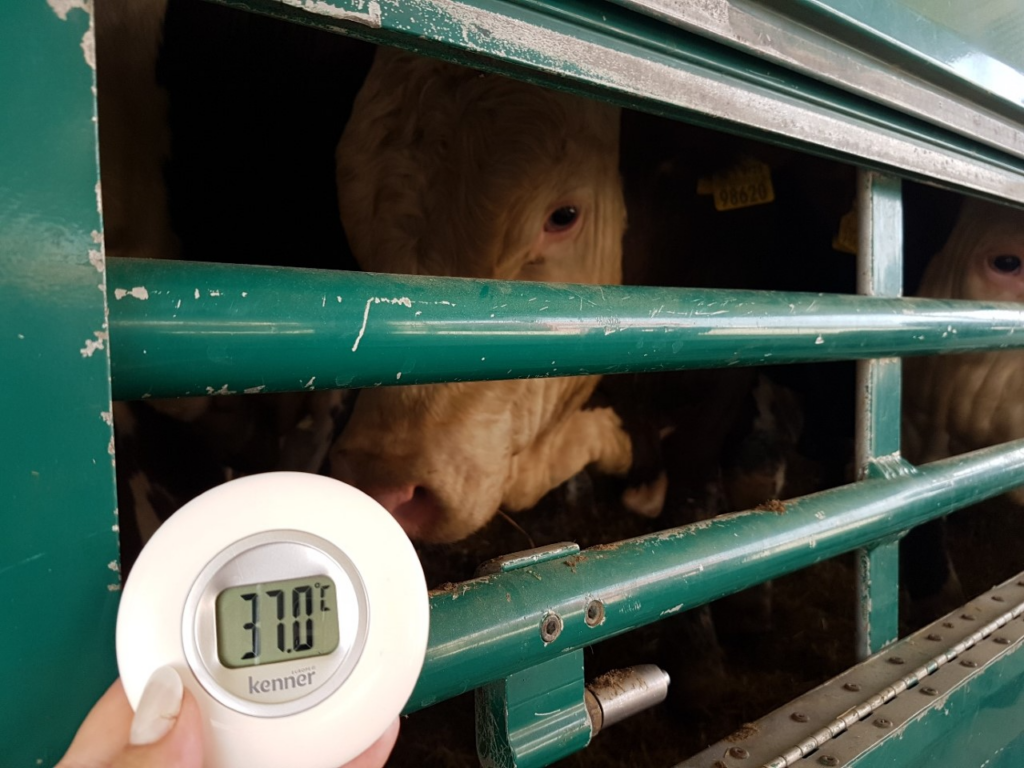Eight EU countries that export most live animals to non-EU countries issued last week an information note to the European Council arguing that the export should continue to be allowed in the upcoming revision of EU animal welfare legislation.
The note was drafted by Portugal on behalf of the French, Greek, Irish, Latvian, Lithuanian, Portuguese, Romanian and Spanish delegations in the Agriculture and Fisheries Committee and will be raised at the Council meeting on 30 January.
The note describes animal transport as a critical activity in animal production systems in Europe and worldwide. While admitting the need to revise EU animal welfare legislation, it claims that present EU legislation on transport has improved.
Any revised legislation should take into account “the need to ensure the economic competitiveness of EU agricultural enterprises” and not be focused on measures aimed at prohibiting or limiting certain types of transport, according to the note. An EU ban on export of live animals will force third countries to import them “from likely more distant non-EU suppliers with less developed animal welfare provisions.”
According to animal welfare NGO Compassion in World Farming, the eight countries behind the note are among the EU member states that export most live animals. In 2019, Spain, Romania and France dominated the market for bovine exports, while Greece was the second major EU exporter of pigs. Ireland is exporting in particular calves.
Portugal which initiated the note has signed export agreements with third countries in north Africa and the Middle East, according to animal welfare NGO FOUR PAWS.
The eight countries represent ca 37 % of the EU population and can block a Council decision on a ban on export of live animals. According to voting rules in the Council, a majority of countries representing over 65 % of the EU population is required to approve a legislative proposal.
“European citizens and progressive politicians need no convincing that long-distance animal transport and live exports are ethically unacceptable,” commented Olga Kikou, Head of Compassion in World Farming EU.
She added that vested interests have managed to pull strings on some EU governments and are trying to thwart progress. “This is very disturbing. We, NGOs, will shed light on this to make sure that ministers in these countries will take responsibility for their actions.”
Joe Moran, Director of European Policy Office at FOUR PAWS, was also disappointed with the position expressed in the note. “At a time when citizens across our European Union expect ambitious proposals on animal welfare – including on regulating live transport – we see a move from some to continue with the same broken system that has been shown to have failed time and time again.”
“Only an ambitious reform on the rules of live animal transport and a ban on live export will make a difference. We hope that others will continue to press for proper journey limits, an end to live exports and a shift to a trade in meat and carcasses in lieu of the feeble proposals presented in this paper.”
EU member states are divided on the issue of export of live animals. Germany, currently a big exporter, has decided to restrict animal transports to non-EU countries by withdrawing veterinary certificates as of 1 July 2023. “To ensure that national restrictions are not circumvented, we urgently need better common rules in Europe,” a German minister said.
Other countries, Netherlands, Sweden Belgium and Denmark, have called for an EU ban on live animal export. Sweden is in charge of the EU Presidency during the first half-year of 2023.
“But so far, we have not seen any reaction by the EU Swedish Presidency,” the NGO’s told The Brussels Times. “While Sweden is supposed to act unbiasedly in its current role, they will still have a crucial role in setting the agenda. So far, however, we have not managed to secure any support by the Presidency regarding the issue of animal welfare.”
As previously reported, the European Parliament voted in January 2022 to step up EU efforts to respect animal welfare during transport but stopped short of a ban on export of live animals. It voted for restricting journey time for domestic animals, to put CCTV cameras on transport vehicles and to allow live animal export only if it complies with European animal welfare standards.
Ideally, there should be a transition to a system that favors the transport of semen or embryos over breeding stock, and carcasses and meat over live animals being moved for slaughter.
“Suffering is inherent in the current regime governing live animal transport, both within and outside the EU, because the rules are too lax and often poorly enforced by governments, Olga Kikou commented. “Animals are sentient beings that feel stress, fear and pain, not inanimate objects to be trucked around like furniture or cabbages.”
M. Apelblat
The Brussels Times

